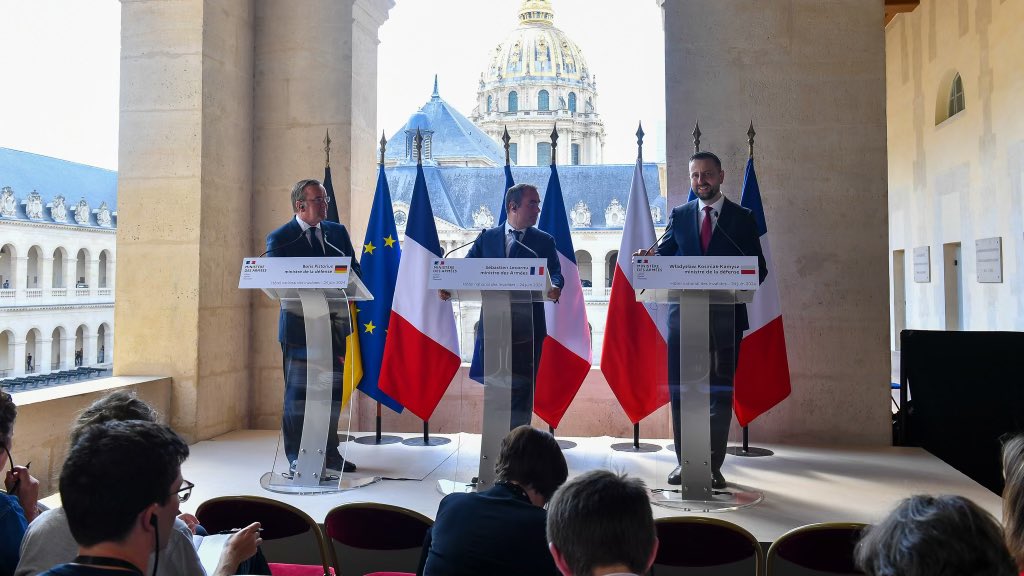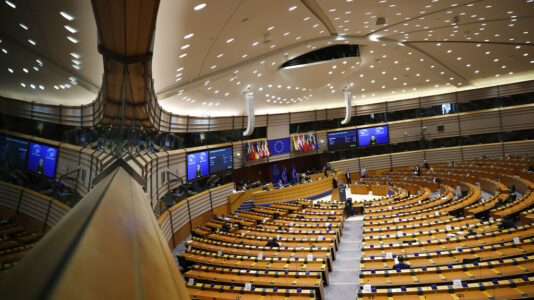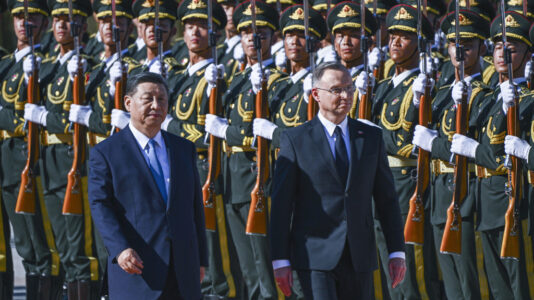Poland, Germany, and France are solidifying their military ties, with plans to conduct joint exercises on Polish soil next year, announced Polish Minister of National Defense Władysław Kosiniak-Kamysz.
The agreement was reached during a meeting in Paris with his counterparts from Germany and France, Boris Pistorius and Sebastien Lecornu, as part of ongoing efforts within the Weimar Triangle, an initiative aimed at enhancing cooperation between the three nations.
The defense ministers discussed several key security issues affecting Europe, including a new “mobility initiative” signed by Poland, Germany, and the Netherlands, which has also now been extended to include France, Belgium and Luxembourg. The initiative aims to enhance the logistics capabilities of these nations.
A major topic of talks in Paris was also the support for Ukraine in its aspirations to join Western structures like the EU and NATO. “For this to become a reality, Ukraine must succeed, it needs to be strong, and we need to achieve success in the fight against Russia. We will support Ukraine by supplying equipment,” stated Kosiniak-Kamysz, emphasizing a greater role for NATO in coordinating and co-financing support efforts.
Responding to questions from Polish journalists about the scale of the upcoming military maneuvers, Kosiniak-Kamysz mentioned that these exercises are expected to be large-scale and conducted annually. “When three significant countries come together for exercises, they cannot be minor,” he remarked.
The German Defense Minister Boris Pistorius also commented on the exercises, noting their “very large dimension” and highlighting the importance of Poland, Germany, and France as the largest countries in this part of Europe. He further suggested that the arms industries of the involved countries need better coordination to avoid duplicating production efforts.






